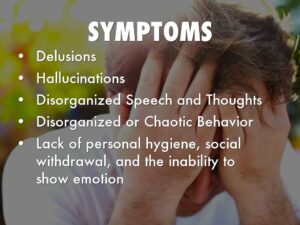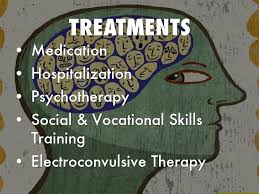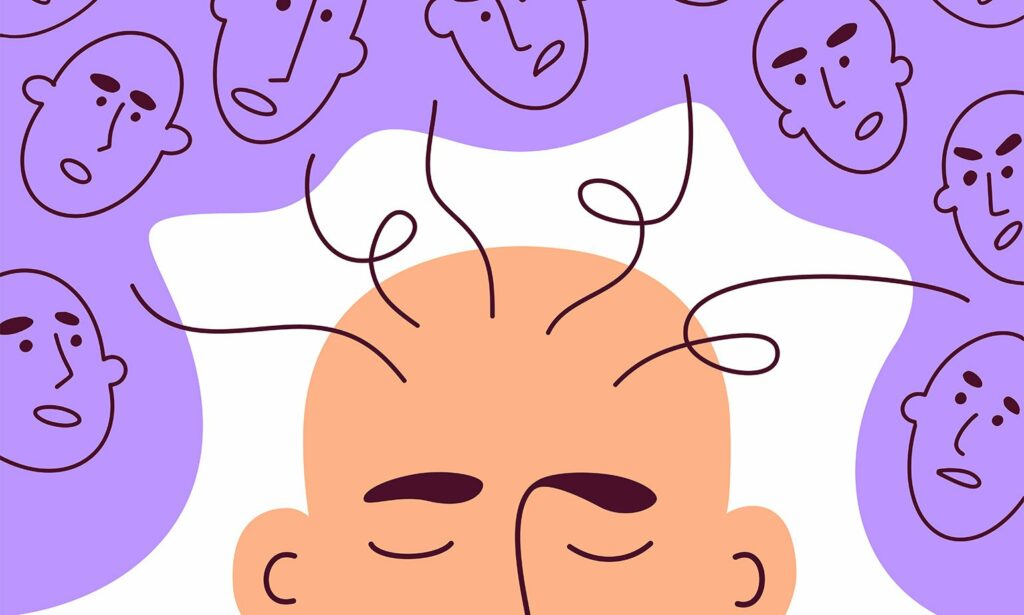Many people suffer from schizophrenia, an illness that has a variety of symptoms and causes. Disorganized schizophrenia is one type of this disorder.
This article discusses what disorganized schizophrenia is, the symptoms, development, and course of the condition, treatment options available to patients with this condition.
We will also mention therapies for disorganized schizophrenia to treat people suffering from this syndrome.
Contents
- 1 What Is Disorganized Schizophrenia?
- 2 Causes Of Disorganized Schizophrenia
- 3 Symptoms of Disorganized Schizophrenia
- 4 Developmental Course And Childhood-Onset Symptoms
- 5 Treatment Options For Disorganized Schizophrenia
- 6 Psychotherapists On Disorganized Schizophrenia
- 7 Therapies For Disorganized Schizophrenia
- 8 Conclusion
What Is Disorganized Schizophrenia?

Disorganized schizophrenia is a type of schizophrenia that is characterized by disorganized thinking, speech, and behavior. This type of schizophrenia typically starts in early adulthood and can cause significant problems in social and occupational functioning.
It is a serious mental disorder that has been linked to cognitive deficits such as language problems, memory impairment, and flat or inappropriate affect (emotional expression). According to NAMI, people with this type of schizophrenia may feel they have little control over actions and thoughts.
There is no one-size-fits-all treatment for this schizophrenia. But various therapies may be helpful depending on the person and the severity of their illness.
Causes Of Disorganized Schizophrenia
The precise cause of disorganized schizophrenia is unknown. But it likely results from a combination of environmental and genetic factors.
Some experts believe that disorganized schizophrenia may be caused by problems in the early development of the brain.
Others think that abnormal levels of neurotransmitters (chemicals that allow nerve cells to communicate with each other) may play a role.
Is It Genetic?
Some studies suggest that there may be a genetic link to this schizophrenia. For example, the condition is more common in people who have family members with it than those without relatives affected by it.
Symptoms of Disorganized Schizophrenia

The symptoms of disorganized schizophrenia can vary significantly from person to person. But may include the following:
- Incoherent or nonsensical speech
- Disordered thinking and inability to focus on tasks
- Poor judgment and decision making skills
- Social withdrawal and isolation
- Rambling, aimless thoughts and actions
- Lack of emotional expression or inappropriate emotional reactions
- Disturbed body movements or agitation
- Psychotic symptoms such as hallucinations or delusions
The course and severity of this schizophrenia can also vary widely from person to person.
Some people may experience only a few mild symptoms that cause minimal disruption in their lives.
While others may experience more severe and debilitating symptoms that make it difficult to function day-to-day.
Developmental Course And Childhood-Onset Symptoms
The developmental course for disorganized schizophrenia may vary depending on the individual’s symptoms.
Some people begin experiencing some mild or subtle signs during childhood.
While others experience significant problems before age 20 years.
Treatment Options For Disorganized Schizophrenia

The treatment options for disorganized schizophrenia vary depending on the individual’s symptoms and needs.
People with this schizophrenia often benefit from a combination of treatments to manage their symptoms. Some common treatments include:
Antipsychotic Medications
Oral medications and/or long-acting injections may reduce psychotic symptoms such as hallucinations, delusions, and paranoia.
Other Medications
In addition to antipsychotic medications, antidepressants may be used to treat some of the other symptoms associated with schizophrenia.
Electroconvulsive Therapy (ECT)
This is a treatment in which electrical currents are passed through the brain under general anesthesia. ECT can help improve severe psychotic symptoms such as hallucinations and delusions.
Self-help Groups
Meeting other individuals who have similar experiences can be very helpful for some people dealing with the challenges of schizophrenia.
Social Support Services
Helping people with disorganized schizophrenia develop social skills. They learn to live independently. In turn, it significantly improves the quality of their life.
Psychotherapists On Disorganized Schizophrenia
Many psychotherapists have experience working with people who have disorganized schizophrenia.
Some therapists may specialize in working with individuals who have a diagnosis of schizophrenia. While others may not be as familiar with this disorganized schizophrenia but are willing to learn more about it.
If you are looking for a therapist who specializes in this type of schizophrenia, ask your doctor or mental health provider for a referral.
Therapies For Disorganized Schizophrenia
The following are some common psychotherapeutic treatment options for people with disorganized schizophrenia:
Family Therapy
It helps individuals affected by Schizophrenia deal with family members. Consequently, they learn to live independently which improves their quality of life. Family therapy also helps families deal with stress, anxiety, and other related problems that may make it difficult for a person diagnosed with schizophrenia to cope.
Cognitive Remediation Therapy (CRT)
This type of psychotherapy aid people in managing their cognitive difficulties. This may include memory problems, difficulty with language or speaking skills, and other cognitive issues that are common in schizophrenia.
Others
Transcranial Magnetic Stimulation (TMS)
This type of therapy helps people manage their symptoms by stimulating the brain using magnetic pulses over specific areas in the brain.
Psychosis-Focused Group Therapy
Group therapy may help people develop new skills and receive support from others.
Behavioral Therapies
These therapies help people learn new skills to manage their symptoms. This may include problem-solving therapy, social skills training, and family intervention.
Psychotherapy
Individual or group therapy can help people with disorganized schizophrenia manage their illness using self-management strategies. Such strategies focus on cultivating self-care habits like eating well, sleeping sound, and exercising daily.
Cognitive Behavioral Therapy
CBT helps to change the way a person thinks and acts in certain situations that trigger psychotic symptoms such as delusions, hallucinations, paranoia, and social withdrawal.
NOTE: A combination of two or more of these therapies may help treat disorganized schizophrenia.
Conclusion
Although there is no cure for any type of Schizophrenia. However, treatment options are available to help individuals with the condition manage their symptoms and lead productive lives.
Therefore, people diagnosed with Disorganized Schizophrenia must seek treatment as soon as possible. As research shows that treatment can help reduce psychotic symptoms and improve the quality of life for individuals with this type of Schizophrenia.
If you are looking for affordable Online Counseling MantraCare can help: Book a trial therapy session


